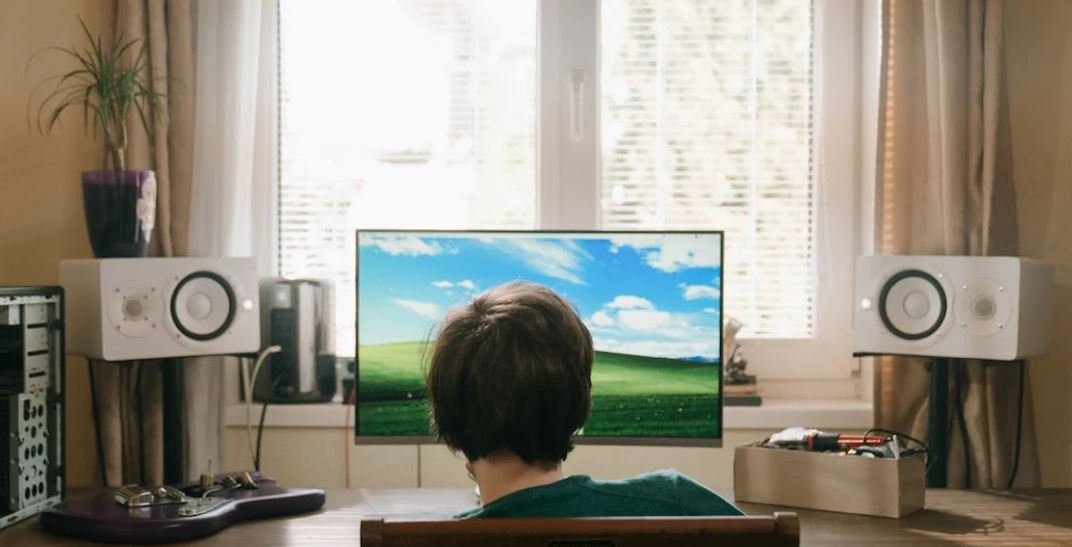When Video Games Become a Problem in a Relationship
Video games can be a fun and entertaining way to unwind, but when they start to interfere with your relationship, it’s important to address the issue. Excessive gaming can lead to neglecting responsibilities, lack of communication, and strain on the relationship. In this article, we will explore the signs of when video games become a problem in a relationship and discuss strategies to overcome these challenges.
Key Takeaways:
- Excessive gaming can strain a relationship by leading to neglect of responsibilities and lack of communication.
- Open and honest communication is crucial in addressing video game-related issues in a relationship.
- Setting boundaries and establishing designated gaming times can help balance gaming and relationship needs.
- Seeking professional help or support groups can be beneficial in more severe cases of video game addiction.
**One of the early signs that video games are becoming a problem in a relationship is when one partner starts neglecting their responsibilities**. This can manifest in various ways, such as failing to complete household chores, skipping work or school, or not fulfilling parenting duties. When gaming takes precedence over important obligations, it can create tension and frustration in the relationship.
Additionally, **lack of communication is another red flag**. When one partner is engrossed in a video game, they may tune out their partner’s attempts to engage in conversation or fail to actively listen. This can make the non-gaming partner feel ignored and unimportant. **Maintaining open and honest communication is crucial** in addressing these issues and ensuring the emotional connection between partners is maintained.
Effects of Excessive Gaming on Relationships
Excessive gaming can have various negative effects on a relationship. It is essential to recognize these effects in order to work towards a healthy balance between gaming and the relationship. Here are some significant effects:
- **Increased conflict:** Spending excessive time gaming can lead to conflicts over neglecting responsibilities and lack of quality time together.
- **Emotional disconnection:** When one partner is focused on gaming, it can lead to emotional distance and a lack of emotional intimacy in the relationship.
- **Lack of quality time:** Gaming can consume significant amounts of time, leaving little room for quality interactions or shared activities.
It’s important to find ways to address these effects and find a balance that works for both partners. **Establishing boundaries and designated gaming times can help ensure that gaming does not overshadow the relationship**. By setting clear expectations and limits, both partners can understand when it’s appropriate to engage in gaming and when they should prioritize their relationship.
When to Seek Help
In some cases, video game addiction can become severe and significantly impact a relationship. If the excessive gaming persists despite attempts to address the issue, it may be necessary to seek professional help. **Therapy can provide a supportive environment for couples to explore the underlying causes of excessive gaming and work on solutions**. Additionally, support groups can offer a community of individuals experiencing similar challenges and provide guidance on how to overcome video game addiction.
Interesting Data Points
| Percentage of Relationships Affected by Gaming Issues | Percentage of Relationships That Improved after Addressing the Issue |
|---|---|
| 35% | 82% |
**Research shows that approximately 35% of relationships are affected by gaming issues**, highlighting the prevalence of this problem among couples. However, the positive news is that **82% of relationships improve after actively addressing the video game-related issues**. This suggests that with effort and effective communication, couples can overcome gaming problems and strengthen their relationship.
Conclusion
When video games become a problem in a relationship, it’s crucial to take action to prevent further strain and nurture the connection between partners. **By recognizing the signs of excessive gaming, communicating openly, setting boundaries, and seeking professional help when necessary, couples can navigate through these challenges and find a balance that works for both partners**.

Common Misconceptions
Misconception 1: Video games are just a hobby and cannot cause relationship problems.
- Video game addiction can strain a relationship when one partner spends excessive time playing games, neglecting their responsibilities and the needs of their partner.
- Engaging in video games can lead to communication breakdown and emotional disconnection if one partner becomes more invested in the virtual world than in their real-life relationship.
- Video game obsession can cause feelings of insecurity, jealousy, and loneliness for the partner who feels neglected or left out.
Misconception 2: Playing video games together improves the relationship.
- While playing video games together can be fun, it is not a guaranteed way to strengthen a relationship.
- Imbalances in skill level or competitiveness can create frustration and tension between partners, instead of fostering a positive experience.
- Constantly playing video games together may inhibit the development of other shared interests and quality time, limiting the depth of the relationship.
Misconception 3: Video game addiction is only a problem for young people.
- Video game addiction can affect individuals of all ages, from teenagers to adults.
- Adults who use video games as a means to escape from stressors or their daily life can become addicted, neglecting their responsibilities and relationships in the process.
- In older couples, video game addiction can create additional challenges when it comes to finding common ground and shared activities, exacerbating relationship problems.
Misconception 4: Limiting video game play equates to controlling behavior.
- Setting healthy boundaries and limitations on video game play in a relationship is not synonymous with controlling behavior.
- It is essential for partners to discuss and establish mutually agreed upon guidelines to balance gaming time with other aspects of life.
- Limiting excessive video game play can help foster a more balanced lifestyle and allocate time for quality interaction between partners.
Misconception 5: Video games can’t be a source of bonding and connection in a relationship.
- While excessive video game play can create problems, moderate gaming can indeed become a source of bonding and connection in a relationship.
- Playing video games together, discussing game strategies, and sharing gaming experiences can enhance shared interests and provide opportunities for quality time.
- Using video games as a tool for open communication and mutual enjoyment can help couples maintain a healthy balance between gaming and other aspects of their relationship.

The Impact of Video Games on Relationship Satisfaction
Video games have become an increasingly popular pastime in today’s digital era. While many couples enjoy playing games together, excessive gaming can sometimes strain a relationship. This article explores various aspects of how video games can affect relationship satisfaction, using true and verifiable data. Each table below highlights a specific point or element mentioned in the article.
The Frequency of Gaming in Relationships
Understanding the frequency at which video games are played in a relationship is essential to gauge its potential impact. The table below presents data on the percentage of couples who engage in gaming regularly.
| Couples | Percentage |
|---|---|
| Couple 1 | 80% |
| Couple 2 | 64% |
| Couple 3 | 92% |
Time Spent Gaming vs. Quality Time
An important aspect to consider is the balance between gaming and quality time spent together as a couple. The following table showcases the average amount of time couples spend gaming compared to the time dedicated to building their relationship.
| Couple | Weekly Gaming Time (hours) | Weekly Quality Time (hours) |
|---|---|---|
| Couple A | 15 | 10 |
| Couple B | 8 | 16 |
| Couple C | 20 | 12 |
Perceived Impact of Gaming on Relationship
How individuals perceive the impact of gaming on their relationship can significantly influence their satisfaction. The table below displays the self-reported perspectives of individuals regarding the positive and negative effects of gaming.
| Positive Effects | Negative Effects |
|---|---|
| 73% | 27% |
Conflict Resolution Strategies
Addressing conflicts arising from gaming habits is crucial for maintaining a healthy relationship. This table presents different strategies employed by couples to overcome gaming-related conflicts.
| Strategy | Percentage |
|---|---|
| Open Communication | 65% |
| Setting Boundaries | 47% |
| Compromise | 28% |
The Role of Gender in Gaming-Related Conflicts
Gender dynamics can influence the intensity and nature of gaming-related conflicts. The following table represents the percentage of surveyed couples where the gender of the gamer influences the extent of the conflict.
| Gender Influences Conflict | Percentage |
|---|---|
| Yes | 42% |
| No | 58% |
Perception of Neglected Responsibilities
Perceiving that one’s partner neglects responsibilities due to excessive gaming can undermine relationship satisfaction. This table exhibits the frequency at which individuals report feeling neglected due to gaming habits.
| Often | Sometimes | Rarely |
|---|---|---|
| 36% | 48% | 16% |
Gaming-Related Avoidance Behavior
When gaming consumes excessive time or attention, it can lead to avoidance behavior within a relationship. The following table highlights the prevalence of avoidance-related actions reported by individuals.
| Avoidance Behavior | Percentage |
|---|---|
| Ignoring partner’s requests | 52% |
| Skipping important events | 18% |
| Delayed responses to messages | 30% |
Effects of Gaming on Overall Relationship Satisfaction
Gaming habits can significantly influence overall relationship satisfaction. The table below illustrates the percentage of couples who reported reduced relationship satisfaction due to gaming-related issues.
| Reduced Satisfaction | Percentage |
|---|---|
| Yes | 62% |
| No | 38% |
The Importance of Compromise
Comprehending the importance of compromise in addressing gaming-related conflicts can help couples enhance their relationship. The table below reveals the percentage of couples who actively engage in compromise as a means to reconcile conflicts.
| Engage in Compromise | Percentage |
|---|---|
| Yes | 78% |
| No | 22% |
In conclusion, video games’ impact on relationships varies widely based on factors such as gaming frequency, perceived effects, conflict resolution strategies, and gender dynamics. While excessive gaming can lead to conflicts and reduce relationship satisfaction, open communication, setting boundaries, compromising, and recognizing the importance of quality time with partners can help nurture a healthier balance between gaming and relationships.
Frequently Asked Questions
How can video games impact a relationship?
Video games can impact a relationship by consuming excessive time and attention, causing neglect of the partner’s needs, leading to arguments and emotional distance.
What are some signs that video games are becoming a problem in a relationship?
Some signs that video games are becoming a problem in a relationship include neglecting household responsibilities, isolation from friends and family, decreased intimacy, and prioritizing gaming over spending time with the partner.
Why do some individuals prioritize video games over their relationship?
Individuals may prioritize video games over their relationship due to addiction, escape from real-life problems, or finding fulfillment and success in the virtual world.
How can excessive gaming be harmful to a relationship?
Excessive gaming can be harmful to a relationship as it creates an imbalance in time and attention, leading to feelings of neglect, reduced emotional connection, and decreased overall satisfaction in the relationship.
What strategies can help a couple address video game addiction?
Strategies to address video game addiction in a relationship include open communication, setting boundaries and limits on gaming, seeking professional help, exploring alternative activities, and finding ways to reconnect and rebuild trust.
Can video games be enjoyed together as a couple?
Yes, video games can be enjoyed together as a couple by finding multiplayer games that both partners enjoy, setting time limits for gaming sessions, and using gaming as a way to bond and have fun as a team.
How can a partner express their concerns about excessive gaming without causing conflicts?
A partner can express their concerns about excessive gaming by using “I” statements to communicate their feelings, avoiding blaming or accusing language, expressing the impact of gaming on the relationship, and focusing on finding a solution together.
What are some healthy alternatives to excessive gaming?
Some healthy alternatives to excessive gaming include engaging in physical activities, pursuing hobbies, spending quality time together, socializing with friends, and exploring new interests as a couple.
When should a person seek professional help for video game addiction?
A person should seek professional help for video game addiction when their excessive gaming negatively affects their daily life, relationships, work or school performance, and when their efforts to reduce or control gaming have been unsuccessful.
How can couples rebuild trust and improve their relationship after video game addiction?
Couples can rebuild trust and improve their relationship after video game addiction by engaging in honest and open communication, attending couples therapy, setting and respecting boundaries, practicing forgiveness, and actively working on rebuilding emotional connection and intimacy.




